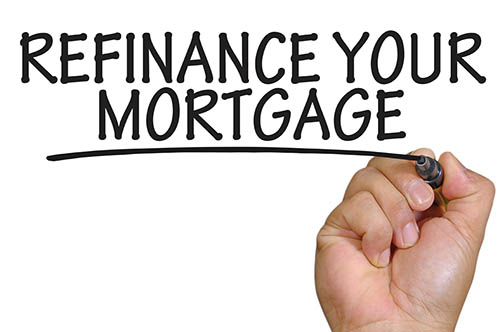Refinancing Your Mortgage? Know These Key Terms Before You Sign Your Paperwork
 When it comes to your mortgage, there are a lot of key terms that are important for every homebuyer to know, and this is no less true than when it comes to refinancing your most important investment. Instead of leaving what’s unknown up to chance, it’s important to be aware of exactly what you’re looking at so you can get the best mortgage product available. If you’re currently considering refinancing and don’t want to get snared by unknown terminology, here are some terms you’ll need to watch out for.
When it comes to your mortgage, there are a lot of key terms that are important for every homebuyer to know, and this is no less true than when it comes to refinancing your most important investment. Instead of leaving what’s unknown up to chance, it’s important to be aware of exactly what you’re looking at so you can get the best mortgage product available. If you’re currently considering refinancing and don’t want to get snared by unknown terminology, here are some terms you’ll need to watch out for.
Cash-Out Refinance
This type of refinance is a transaction where the home’s mortgage amount is higher than the existing mortgage amount, and cash-out refers to the extraction of equity from the homeowner’s home. While this type of refinancing can be a means of tapping into extra cash to help you with monthly expenses, it also means that the cash you take out of your equity will be added to the balance you already owe on your home.
Rate-and-Term Refinance
This type of mortgage transaction involves the refinancing of an existing mortgage so that you can take advantage of a different interest rate. While this type of change will not alter the amount of your home loan, it will adjust the interest which means that your monthly payments may be lowered and your may have a shorter amortization period due to overall reduced costs. These types of loans can often come with lower interest rates than cash-out refinances.
Streamline Refinancing
This type of refinancing is offered by the Federal Housing Administration (FHA) and the Department of Veterans Affairs, and it is also offered by certain financial institutions. While this type of refinancing has its own set of stipulations, it is directed at those who want to take advantage of low interest rates or get out of an adjustable rate mortgage (ARM). While you may need to have a financial appraisal done in order to qualify for this option, it’s also possible that this will not be required to qualify.
There are a lot of key terms that go along with having a mortgage and refinancing it, but if you’re considering your options it’s very important to know what all of them mean so you can be sure you’re making the best decision. If you’re currently considering refinancing your home and need helpful advice, contact your trusted mortgage professional for more information.

 There are more than enough details involved in getting a mortgage and moving into your own home that you’ll want to know how to make the process as seamless as possible beforehand. However, there’s a chance you might not be aware of the things you can do to make it a little easier on yourself. If you’re currently looking for a home and are wondering how to streamline the approval process, here are some things to do before applying to minimize mortgage-related stress.
There are more than enough details involved in getting a mortgage and moving into your own home that you’ll want to know how to make the process as seamless as possible beforehand. However, there’s a chance you might not be aware of the things you can do to make it a little easier on yourself. If you’re currently looking for a home and are wondering how to streamline the approval process, here are some things to do before applying to minimize mortgage-related stress. If you’re dealing with paying off your mortgage and going down to a one-income family, it can be complicated to determine how to financially swing it. However, becoming a parent and managing a mortgage are quite common nowadays with maternity leave and the modern family. While managing a mortgage on just one salary can be a challenge, there are a few simple things you can do to make it work.
If you’re dealing with paying off your mortgage and going down to a one-income family, it can be complicated to determine how to financially swing it. However, becoming a parent and managing a mortgage are quite common nowadays with maternity leave and the modern family. While managing a mortgage on just one salary can be a challenge, there are a few simple things you can do to make it work.